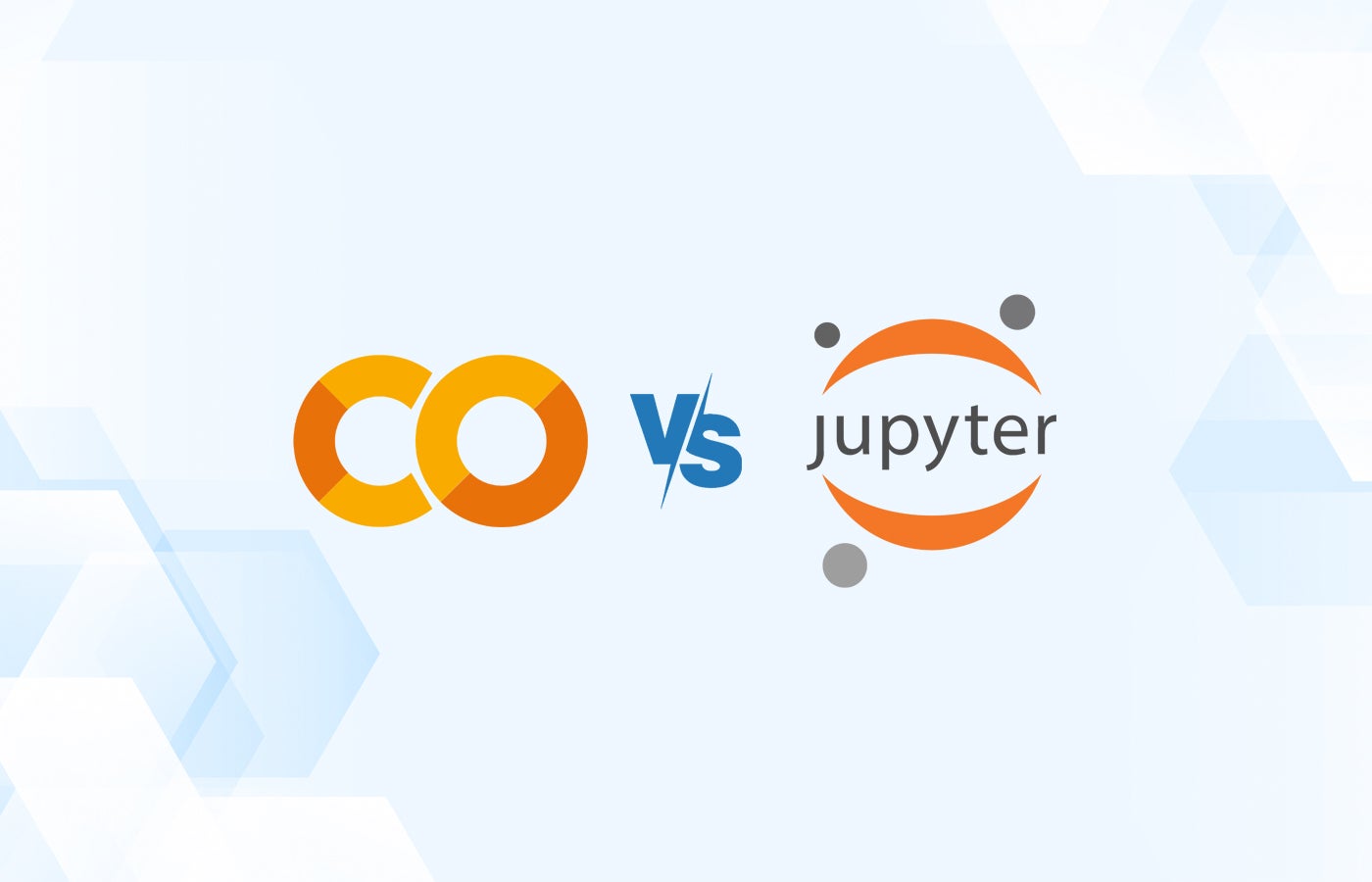Creating, organizing, and sharing computational paperwork is important in programming and knowledge sciences. Most individuals flip to one among two common instruments – Google Colab and Jupyter Pocket book – to assist them handle their information.
SEE: Learn to turn into an information scientist.

What’s Google Colab?
Google Colab is a software provided by Google Analysis that enables customers to put in writing and run Python code of their net browsers. Colab relies on Jupyter open supply and means that you can create and share hosted desktop information within the cloud with out downloading or putting in something.
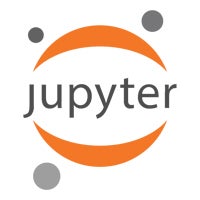
What’s Jupyter Pocket book?
Jupyter is the unique free, open supply, web-based interactive computing platform spun out of the IPython mission; Jupyter Pocket book is an online software that enables customers to create and share calculation paperwork.
Google Colab vs. Jupyter Pocket book: Comparability Desk
| Software program | ||
|---|---|---|
| Begin value | ||
| Free plan | ||
| Cloud based mostly | ||
| File synchronization | ||
| File sharing | ||
| Set up library | ||
| File view with out set up |
Google Colab and Jupyter Pocket book: Pricing
Google Colab and Jupyter Pocket book are each free to make use of. Jupyter Pocket book is launched as an open supply software below the liberal phrases of the modified BSD license, making it 100% free to make use of.
Though Google Colab can be free, you might must pay for superior options as your computing wants improve. The next are the paid plans provided by Google Colab:
- Pay as you go: For this plan there is no such thing as a fastened subscription charge; you solely pay for what you utilize.
- Colab Professional: For $9.99 a month, you get 100 compute models, entry to larger reminiscence machines, and the power to make use of a terminal with the linked digital machine.
- Colab Professional+: For $49.99 month-to-month, you get 500 compute models, quicker GPUs, and background execution functionality.
Function Comparability: Google Colab vs. Jupyter Pocket book
Cloud-based
Google Colab’s principal distinction from Jupyter Pocket book is that it’s cloud-based, and Jupyter isn’t. If you work in Google Collab, you do not have to fret about downloading and putting in something in your {hardware}. It additionally means you may relaxation simple realizing your work will routinely save and again as much as the cloud with out you having to do something.
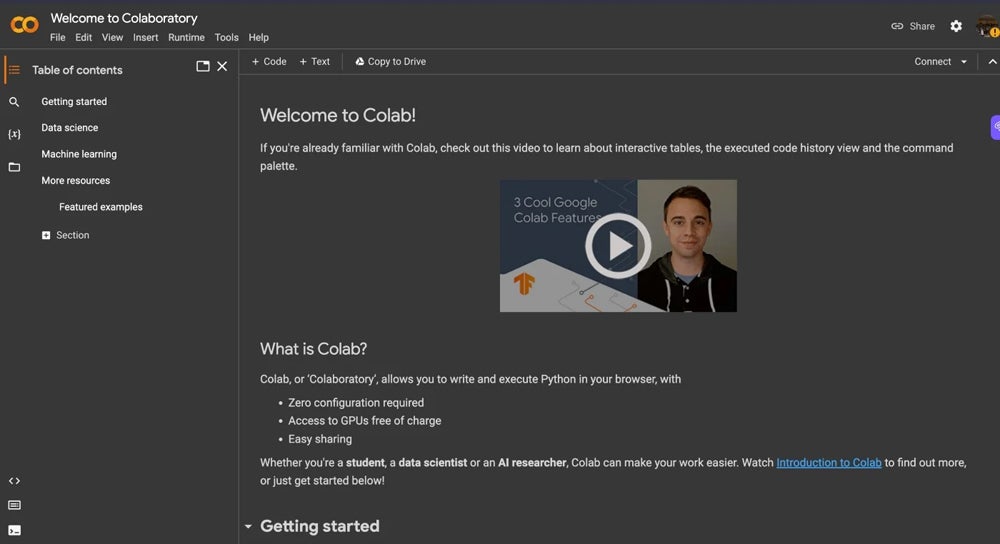
Google Colab is nice if you might want to work throughout a number of gadgets—like one laptop at residence and one at work or a laptop computer and a pill—as a result of it syncs seamlessly throughout gadgets.
In distinction, Jupyter Pocket book runs in your native machine, and information are saved in your exhausting drive. Jupyter presents an automated save interval that you would be able to change, however doesn’t again as much as a cloud. Due to this fact, in case your machine is affected, you’re out of luck. Jupyter cannot sync or share your information throughout gadgets with no third-party file sharing service like Dropbox or GitHub.
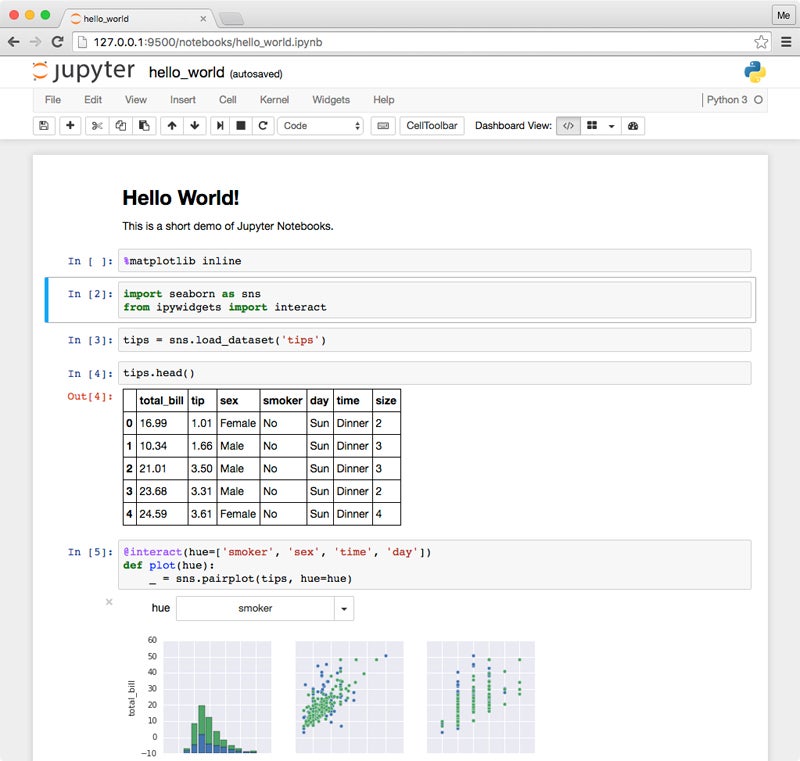
Cooperation
We could not speak about Jupyter Pocket book vs. Google Colab with out mentioning collaboration. Because the identify suggests, Google Colab is constructed to make it simple to share your notebooks with anybody—even when they don’t seem to be an information scientist. Different individuals can view your pocket book with out downloading any software program—an enormous benefit should you typically work with non-techies who must entry the information.
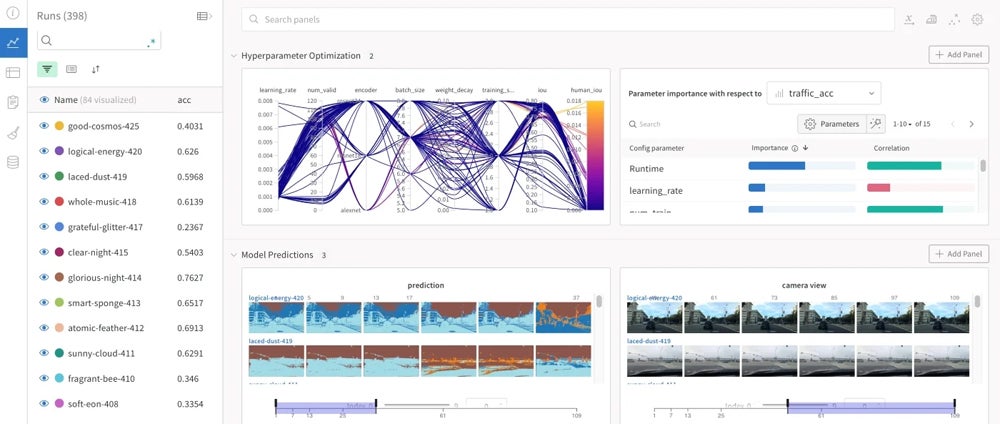
Conversely, anybody else wants to put in Jupyter Pocket book on their system to share their notebooks. This may not be a barrier should you solely work with builders, knowledge scientists, and different techies who have already got Jupyter put in. When you’re engaged on a extra various group, you would possibly need to think about Google Colab as a result of it is simpler to share information.
Set up library
Since Google Colab is cloud-based, the software comes pre-installed with a number of libraries. This implies you do not have to allocate valuable disk house or time to manually obtain the libraries. The free model additionally comes with a sure degree of graphics processing models, reminiscence and runtime, which can range. You possibly can improve to one of many paid plans if further capability is required. Google doesn’t disclose limits for any of its Colab plans because of the want for flexibility.
With Jupyter Pocket book, you will have to put in every library you need to use in your system utilizing pip or one other bundle supervisor. Additionally, you will be restricted by your laptop’s obtainable RAM, disk house, GPU and CPU. Storing the notebooks in your {hardware} is safer than in a third-party cloud. Due to this fact, the handbook library set up is usually a plus for delicate knowledge.
R Scripts
Each Google Colab and Jupyter Pocket book enable customers to run R scripts, though they’re primarily designed for Python. In Google Colab, customers can now select to work with R by deciding on it from the Runtime menu. For Jupyter Pocket book, customers should set up an R kernel to work with R on their laptop.
Google Colab Execs and Cons
Advantages
- Easy interface that’s simple to navigate.
- Entry GPU and TPU runtimes free of charge.
- Import appropriate machine studying and knowledge science tasks from different sources.
- Automated model management just like Google Docs.
- Actual-time collaboration functionality.
- Combine with different instruments together with GitHub, Jupyter Pocket book, BLACKBOX AI, Codeium, CodeSquire, Google Workspace, Neptune.ai, StrongDM, Google Drive and extra.
Disadvantages
- The free plan offers you restricted sources.
- Some customers have reported issues with the velocity of loading new databases and knowledge frames which might be current offline.
Jupyter Pocket book Execs and Cons
Advantages
- Trendy, intuitive and interactive person interface.
- Help markdown language for documentation.
- Interactive interface makes it simple for customers to share photos, code and textual content in a single place.
- Helps a number of programming languages together with Python, R and Julia.
Disadvantages
- Some customers have reported that the software program turns into sluggish or generally crashes when working with massive datasets or performing advanced calculations.
- Some Jupyter Pocket book customers have reported that monitoring adjustments and collaborating with model management instruments like Git could be difficult as a result of notebooks are saved as JSON information.
Ought to your group use Google Colab or Jupyter Pocket book?
Each Jupyter Pocket book and Google Colab could be the fitting alternative in particular circumstances. Google Colab is a wonderful alternative for entry-level builders or non-programmers who need to get began rapidly with out putting in something. It is also a good suggestion for anybody who must share pocket book information with individuals who do not have the fitting software program put in on their gadgets.
Lastly, Google Colab is a should for anybody who desires to again up their work to the cloud and sync their notebooks throughout a number of gadgets — however the ease of cloud sharing means lowered knowledge safety.
In the meantime, Jupyter is healthier for delicate information that must be stored off the cloud. Putting in the notebooks by yourself {hardware} additionally means you by no means have to fret about throttling your GPU or runtimes, which might generally occur on the free Colab accounts.
Evaluate methodology
We reviewed each devices by gathering main knowledge from the suppliers’ web sites and documentation; this data consists of options, pricing and use circumstances. We additionally examined every resolution to realize first-hand expertise with its usability. To be taught extra about customers’ expertise, we evaluated present and previous customers’ suggestions from third-party evaluate websites.
Ben Abbott up to date this text in January 2024.
========================
AI, IT SOLUTIONS TECHTOKAI.NET
